Looking forward...
With our final Newsletter of 2018 we bring you the first of a series of themed reports from our colleagues at CMRA in Kenya as they work with the farmers in Asumbi on different aspects of the designs for their model farms. This month's theme is Soil Building.
Meanwhile, the farmers of Sanje village in Uganda are waiting for the outcome of our fundraising campaign to see when they will be able to start work learning how to improve their farms and to work with their community to build eco-social resilience.
If you haven't already viewed the video for our crowdfunding campaign, please do check it out here.
With our final Newsletter of 2018 we bring you the first of a series of themed reports from our colleagues at CMRA in Kenya as they work with the farmers in Asumbi on different aspects of the designs for their model farms. This month's theme is Soil Building.
Meanwhile, the farmers of Sanje village in Uganda are waiting for the outcome of our fundraising campaign to see when they will be able to start work learning how to improve their farms and to work with their community to build eco-social resilience.
If you haven't already viewed the video for our crowdfunding campaign, please do check it out here.
The farmers' representatives from Sanje village at a recent gathering to participate in the preparatory stage of the permEzone phase 2 pilot program
Phase 1 Pilot - Soil Building
Asumbi as a region is known for high level of land degradation. There are several human activities in the region that contribute to this, including:
Before they received their training in permaculture, the farmers used to collect the crop remains on the farm and burn them. Now they no longer do that as you can see below Mrs. Aludo making her own compost using this. They also considered cattle waste as dirt but then things have changed and now it is a resource - in accordance with the permaculture principal to produce no waste.
The farmers are actually looking at building their soils in an ecological manner and understanding how all the elements relate to each other in their farms.
Asumbi as a region is known for high level of land degradation. There are several human activities in the region that contribute to this, including:
- Brick making is a local activity that requires huge quantities of soils for the bricks. This leads to land degradation as the top fertile soil is taken away and used in burning the bricks for use as building materials.
- Another impact of brick making relates to the use a lot of fire wood in burning the bricks, leading to deforestation as the trees aren't replaced. As a result, the land remains bare, which causes soil erosion and contributes to erratic rainfall linked to the effects of climate change.
- High levels synthetic of fertilizer usage further degrade soils. Because of extensive soil erosion, local farmers believe that it is necessary to use Di-Ammonium Phosphate (DAP) during planting and Calcium Ammonium Nitrate (CAN) for top dressing in order to get a good harvest.
- Livestock. Waste from their cattle and poultry make good composition for compost besides being used as farmyard manure after well decomposition. Poultry waste too can be used for composting besides being used as guano manure when well decomposed.
- Organic matter. The remains from previous crops can be used to make compost and mulching with an aim of building these soils in terms of improved fertility, soil moisture retention, soil structure and temperature.
Before they received their training in permaculture, the farmers used to collect the crop remains on the farm and burn them. Now they no longer do that as you can see below Mrs. Aludo making her own compost using this. They also considered cattle waste as dirt but then things have changed and now it is a resource - in accordance with the permaculture principal to produce no waste.
The farmers are actually looking at building their soils in an ecological manner and understanding how all the elements relate to each other in their farms.
Staff Capacity Building
Paul Omollo is the CMRA staff member in charge of the project in the field in Asumbi. He attended a workshop on Permaculture Teacher Training, sponsored by the permEzone project. The workshop was facilitated by Casper Brown from South Africa, and was organized by Permaculture Research Institute-Kenya at Acacia camp in Nairobi. Participants came from Kenya, Uganda, Tanzania, Liberia, Zambia, and Germany.
Paul Omollo is the CMRA staff member in charge of the project in the field in Asumbi. He attended a workshop on Permaculture Teacher Training, sponsored by the permEzone project. The workshop was facilitated by Casper Brown from South Africa, and was organized by Permaculture Research Institute-Kenya at Acacia camp in Nairobi. Participants came from Kenya, Uganda, Tanzania, Liberia, Zambia, and Germany.

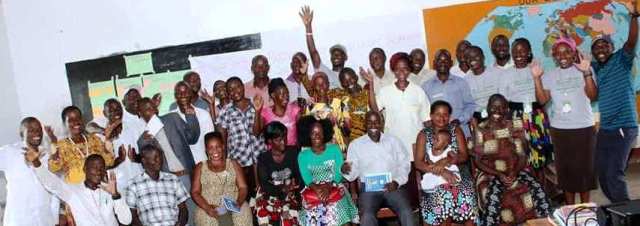
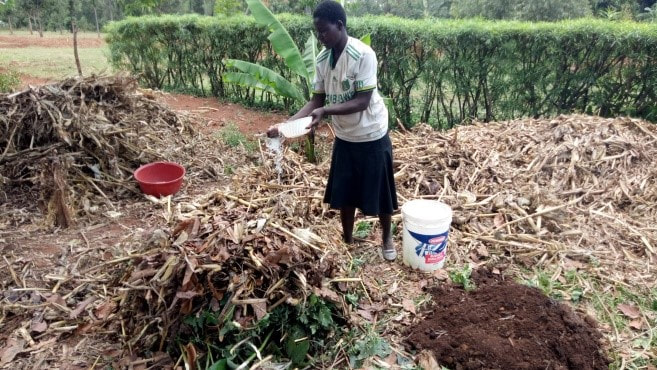
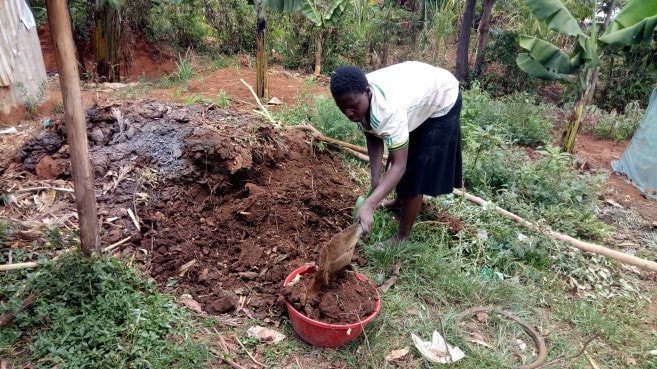
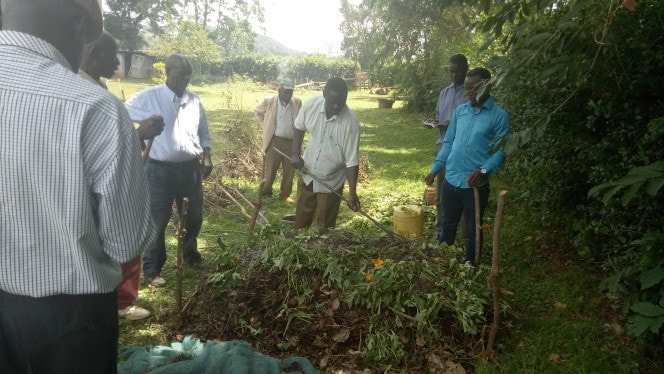
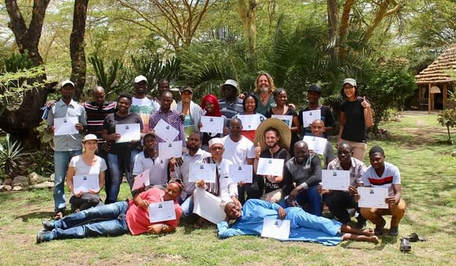

 RSS Feed
RSS Feed